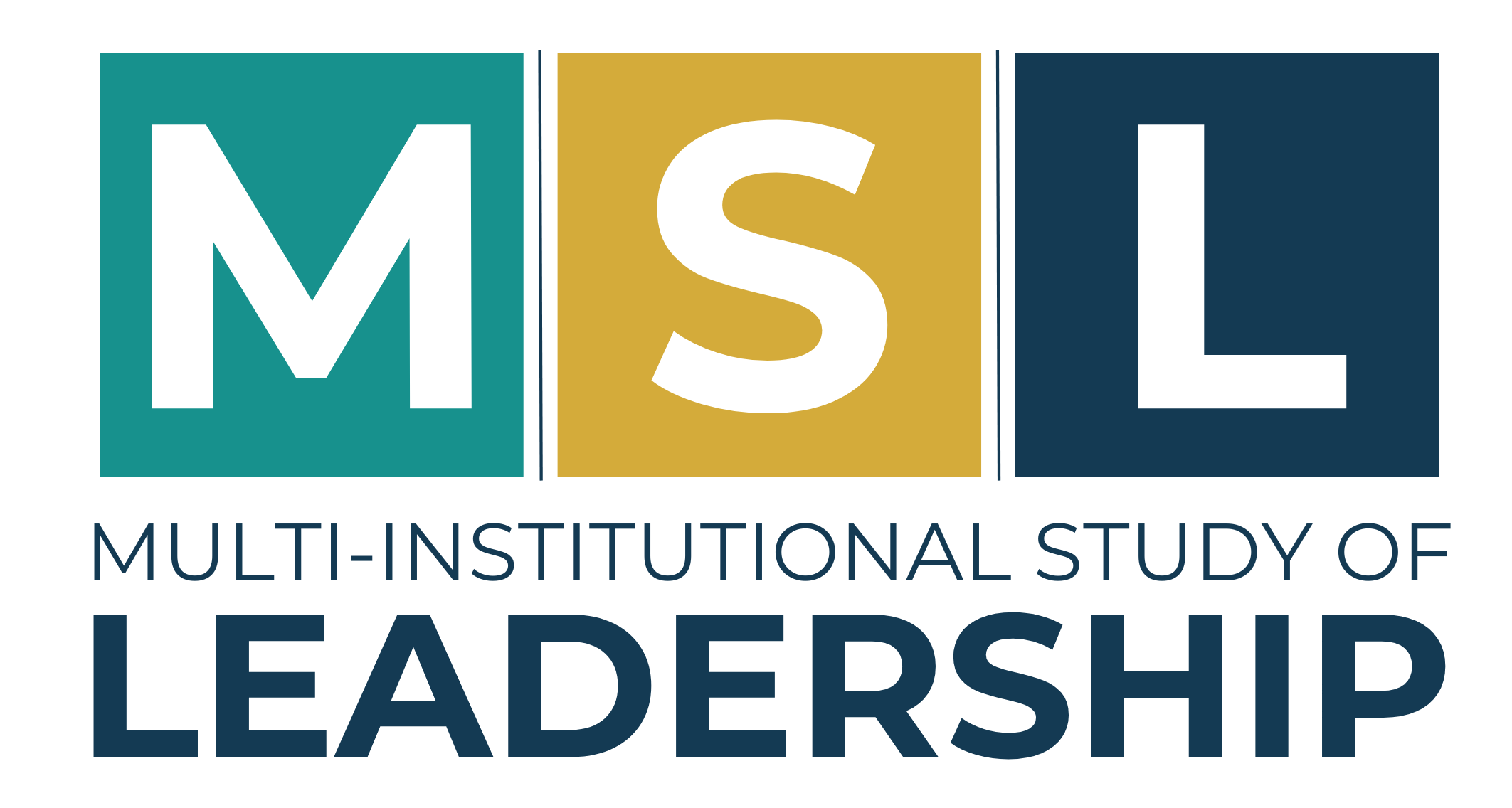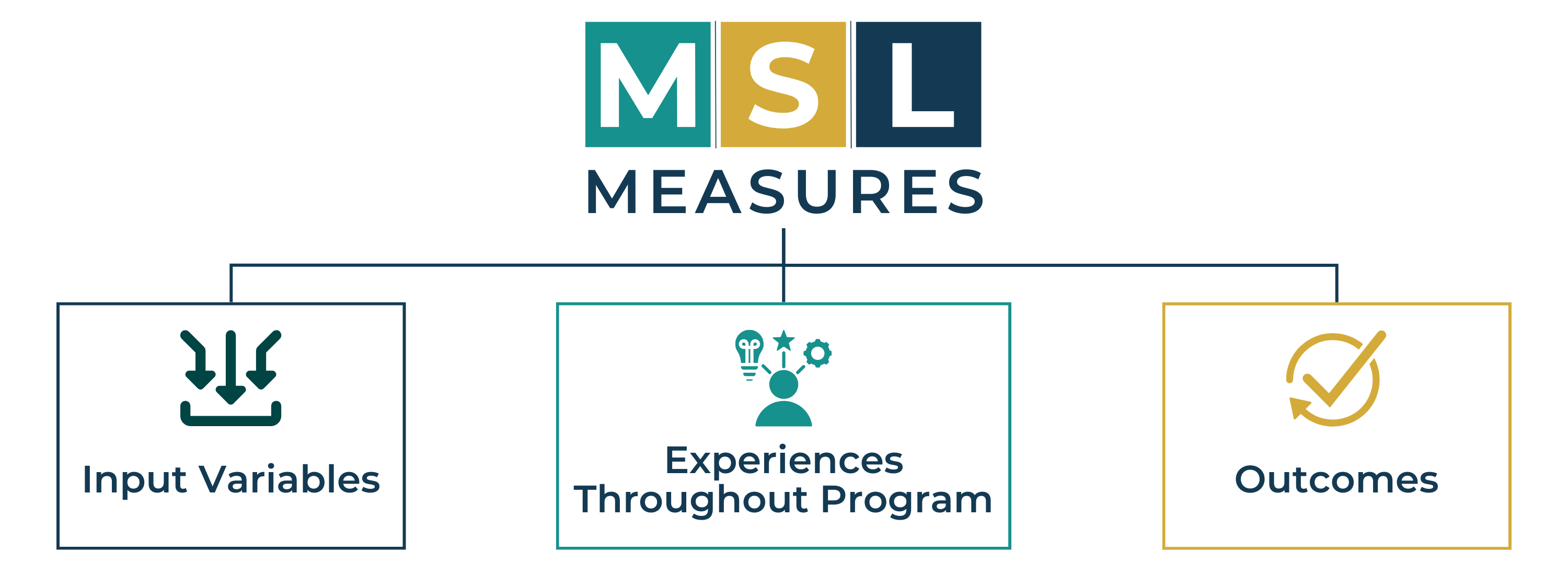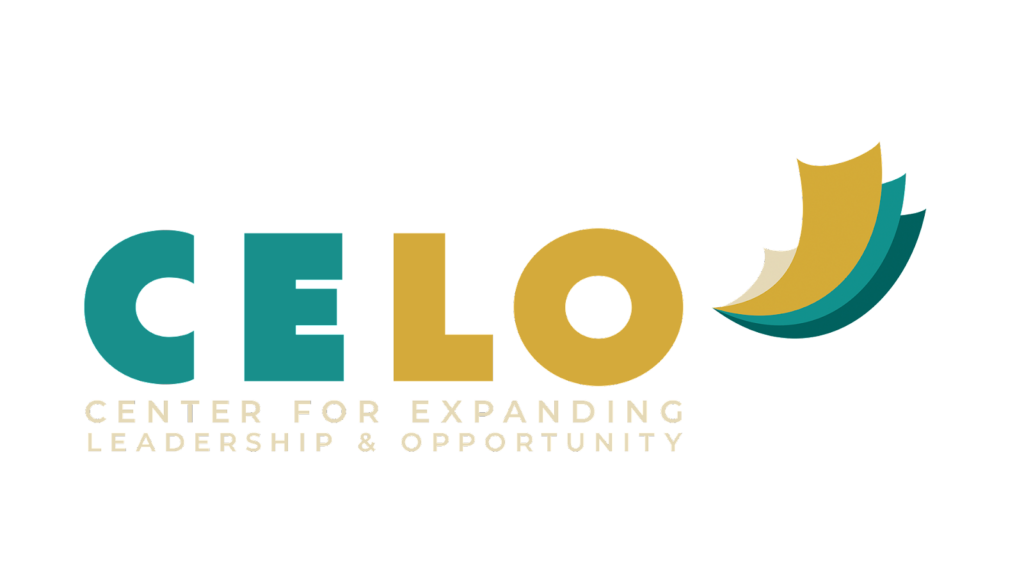
Instrument & Psychometrics
The MSL survey questionnaire is composed of both existing and newly created scales designed to measure elements of the conceptual and theoretical frameworks. The amount of data generated for use in evidence-based practice is significant and transferable across a variety of contexts (e.g., leadership programs, residence life, multicultural affairs, academic units, institutional research, campus recreation, fraternity and sorority life).
The MSL survey is particularly useful because it:
Captures one of the widest ranges of student demographic data, modeling the justice approach embedded in the theoretical framework. This includes capturing data on racial group membership, ethnic sub-group membership, AND racial identity salience; inclusion of identifiers for gender and sexual identity; a wide range of religious affiliations; and multiple dimensions of ability status, including disaggregated analyses of a variety of learning differences.
Examines both developmental experiences AND educational outcomes, including a wide range of identity and human development constructs (e.g., complex cognitive skills, resilience, social perspective-taking, spiritual development).
The MSL survey instrument generates over 400 items and scales. The information below provides samples of key variables from across three domains of the study.

Input Variables
Capture demographics and experiences before participation. Variables include:
- Age
- Gender and sexual identity
- Racial and ethnic group membership
- Military status
- Parental education and income
- Pretest measures for all educational outcomes
- Involvement experiences prior to higher education
Experiences Throughout Program
Capture a wide range of experiences that occur during participation in your program or enrollment at your institution, and are often aligned with high-impact educational practices. Variables include:
- Mentoring relationships (e.g., with faculty, peers, community members, employers, parents)
- Academic-based experiences (e.g., study abroad, first-year seminars, research with faculty, internships)
- Involvement experiences (e.g., breadth and depth of involvement in both on and off-campus organizations)
- Civic engagement involvement (e.g., type and levels of involvement in community service learning experiences)
- Leadership development experiences (e.g., levels of involvement in both curricular and co-curricular leadership programs)
- Interactions about and across difference and perceptions of campus climate
Outcomes
Capture the degree of achievement across a wide-array of educational and leadership-related outcomes. This includes measures of:
- Leadership capacity (i.e., the knowledge, skills, and abilities associated with socially responsible leadership) including self-awareness, values congruence, ability to collaborate effectively, community engagement, and navigating conflict with civility among others;
- Leadership efficacy (i.e., one’s internal belief in their ability to lead effectively);
- Leadership behaviors (i.e., the degree to which on actually enacts leadership capacity to advance social responsibility and change);
- Higher order cognitive abilities including complex cognitive skills and social perspective-taking;
- Developmental outcomes related to resilience, racial identity and spiritual development; and
- Sense of belonging on campus.
Note that MSL also makes use of “sub-studies” as part of the research design. This involves administering some variables to a randomly selected 50% of the participants at each institution and organization. MSL uses sub-studies to explore new areas of interest without dramatically increasing the length of the survey.
The MSL survey includes more than 400 variables, scales, and composite measures. As such, it would be impossible to detail full information related to the validity and reliability of measures. Much of this information can be found in academic articles published using the various scales accessible via this website. Additionally, a brief summary of the psychometrics of the survey can be found here.
The MSL survey instrument is also constantly evolving to include important new variables associated with participant inputs, experiences during college, and outcomes. The survey instrument is typically finalized in June of the year prior to administration. If you would like to see a sample of the MSL survey instrument, please contact msl@expandingleadership.org.
Ready to Enroll in the MSL?
Want to use an MSL scale or data set for your study?
Information and Inquiries
For inquiries about the MSL, please email us at msl@expandingleadership.org and a research team member will respond within two business days.
Sign up here to receive more information about the MSL.
